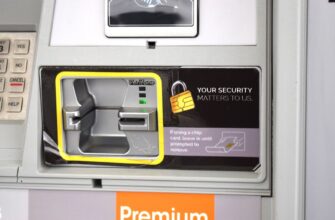- Introduction: Navigating Crypto Through Islamic Principles
- Who is Mufti Menk?
- Mufti Menk’s Stance on Cryptocurrency
- Conditions for Cryptocurrency to Be Halal
- Types of Cryptocurrency to Avoid
- Broader Islamic Perspectives on Crypto
- Practical Advice for Muslim Investors
- Frequently Asked Questions
- 1. Did Mufti Menk declare Bitcoin haram?
- 2. Is crypto mining halal?
- 3. Can I use crypto for zakat?
- 4. Are NFTs halal?
- 5. Where can I find Shariah-compliant exchanges?
Introduction: Navigating Crypto Through Islamic Principles
As cryptocurrency reshapes global finance, Muslims worldwide grapple with a critical question: Is crypto halal? Esteemed Islamic scholar Mufti Ismail Menk offers nuanced guidance on this modern dilemma. While avoiding absolute rulings, his insights help Muslims evaluate digital assets through Shariah principles. This article explores Mufti Menk’s perspective on cryptocurrency, key conditions for halal compliance, and practical advice for ethical investing.
Who is Mufti Menk?
Mufti Ismail Menk is a globally recognized Islamic scholar from Zimbabwe, renowned for his moderate interpretations and accessible fatwas. With over 10 million social media followers, his counsel bridges classical jurisprudence and contemporary issues. Though he hasn’t issued a formal crypto fatwa, his public discussions emphasize evaluating innovations through core Islamic values: avoiding exploitation, uncertainty (gharar), and interest (riba).
Mufti Menk’s Stance on Cryptocurrency
Mufti Menk approaches crypto with cautious pragmatism. In lectures and tweets, he highlights that cryptocurrency isn’t inherently haram but requires scrutiny. Key aspects of his position include:
- Conditional Permissibility: Crypto may be halal if it avoids prohibited elements like gambling or fraud.
- Utility Over Speculation: Coins with real-world utility (e.g., payment systems) are preferable to purely speculative assets.
- Transparency Mandate: Projects must disclose operations clearly to prevent gharar (excessive uncertainty).
- Caution Against Hype: Warns against impulsive investments driven by market frenzy rather than due diligence.
Conditions for Cryptocurrency to Be Halal
Based on Mufti Menk’s principles, crypto must meet these Shariah conditions:
- Asset-Backed Value: Tokens should represent tangible assets or verifiable services, not abstract speculation.
- Zero Interest (Riba): Earning mechanisms must avoid fixed interest or lending models forbidden in Islam.
- Ethical Use Cases: Blockchain applications shouldn’t support haram industries (e.g., gambling, alcohol).
- Price Stability Mechanisms: High volatility invites gambling-like behavior; stablecoins or regulated projects are preferable.
- Transparent Governance: Clear whitepapers, auditable transactions, and decentralized control minimize deception risk.
Types of Cryptocurrency to Avoid
Mufti Menk’s framework flags these crypto categories as potentially non-compliant:
- Meme Coins: Assets like Dogecoin with no utility, driven purely by social media hype.
- Yield Farming Platforms: If returns resemble interest-based lending (riba).
- Gambling DApps: Cryptocurrencies powering online casinos or prediction markets.
- Privacy Coins: Anonymous tokens (e.g., Monero) enabling illicit activities under Shariah law.
- Unregistered ICOs: Initial coin offerings lacking regulatory oversight or clear business plans.
Broader Islamic Perspectives on Crypto
Beyond Mufti Menk, scholars worldwide debate crypto’s permissibility. Indonesia’s Nahdlatul Ulama permits it as a commodity, while Turkey’s Diyanet warns against volatility risks. Consensus emerges on three points: 1) Crypto isn’t money in classical terms but a digital asset, 2) Mining resembles ijarah (service leasing) if energy costs are ethical, and 3) Staking requires profit-sharing models (mudarabah) to avoid riba.
Practical Advice for Muslim Investors
Applying Mufti Menk’s guidance, Muslims should:
- Research Thoroughly: Audit a coin’s whitepaper, team, and Shariah certification (e.g., Shariyah Review Bureau).
- Prioritize Utility Tokens: Choose projects solving real problems (e.g., Halal Chain for supply tracking).
- Limit Exposure: Allocate only discretionary funds you can afford to lose.
- Seek Community Guidance: Consult local imams or platforms like IslamicFinanceGuru for tailored advice.
Frequently Asked Questions
1. Did Mufti Menk declare Bitcoin haram?
No. He avoids blanket rulings but urges scrutiny of Bitcoin’s volatility and real-world utility. Many scholars classify it as mubah (permissible with conditions).
2. Is crypto mining halal?
Potentially, if energy sources are ethical (not wasting resources) and rewards don’t involve riba. Mining pools should distribute profits fairly.
3. Can I use crypto for zakat?
Controversial. Some scholars accept it if converted to fiat first; others permit direct crypto zakat if the recipient can use it. Consult your madhab’s stance.
4. Are NFTs halal?
Depends on content. Art NFTs are generally permissible unless depicting haram imagery. NFT gambling games violate Shariah principles.
5. Where can I find Shariah-compliant exchanges?
Platforms like Wahed Invest and Sarwa offer screened crypto portfolios. Always verify their certification with entities like Amanie Advisors.
In conclusion, Mufti Menk’s approach to cryptocurrency emphasizes intentionality and education. By aligning investments with Islamic ethics—avoiding exploitation, speculation, and opacity—Muslims can navigate this emerging asset class confidently. Always prioritize ongoing learning and consult qualified scholars for personal decisions.








